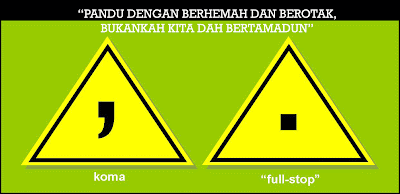Since 2004 I was interested in ultra endurance sporting event. As to show my enthusiast in this field, I craved my name in Malaysia Book of Records (MBOR) for solo cycling in 24 hours. My event that year opened Malaysian mind and there were a lot of ultra endurance events (more than 24 hours) organized. Not being stop at that my very first step, in 2007 I lead a team to once again put Universiti Teknologi Malaysia name in MBOR for Longest Non Stop Running Relay that lasted for 100 Hours.
 that's my name ha?
that's my name ha?
But how as solo athlete, I can push my physiology ability to the limit? Ultra athletes push their bodies to the limits and therefore need nutrient-dense foods to keep them fueled to participate in activities such as an Ironman triathlon, double-century bike ride or an English Channel swim. These ultra athletes should eat nutrient-dense foods at each meal from a variety of sources.
Meal RatiosEach meal should be composed of two-thirds whole grains, vegetables and/or fruits and one-third low-fat meats, dairy, beans or other protein-rich foods. Also, they should eat three types of nutrient-rich foods at each meal. Athletes should aim to eat 35 different foods weekly. The reason athletes should consume different types of foods is to get a variety of vitamins, minerals and other nutrients. If athletes eat the same types of meals week in, week out, they can end up having a nutritionally inadequate diet and, eventually, chronic fatigue.
Essential VitaminsHaving enough B vitamins is crucial for an ultra athlete to help with mental clarity and to power blood cells. Foods that contain essential B vitamins include meat, dairy foods, eggs and spirulina, a type of seaweed.
Antioxidants and PotassiumAntioxidants are also important for ultra athletes. Berries are the best sources of antioxidants. Tea and vegetables also contain small amounts of antioxidants. Potassium is also vital and is lost from the body during workouts through sweating. To replenish potassium, which increases energy, ultra athletes should eat bananas. Other energy-boosting foods include oatmeal.
Fatty AcidsOmega-3 and omega-6 fatty acids are crucial for supporting heart strength and cardio performance. Both are very important for ultra athletes. These fatty acids can be found in fish.
Energy BoostersUltra athletes should consume whole-wheat foods before and after exercise to get increased energy during the workout and to restore muscles afterward.
Eating ScheduleAthletes should eat on a regular schedule, about every 4 hours. Depending on body size, each meal should be about 500 to 750 calories, totaling 2,000 to 3,000 calories per day. Athletes are cautioned, though, to not eat in a "crescendo"--meaning their meals should not get bigger as the day progresses. It's actually better to eat the bigger meal earlier, to increase energy in the afternoon and be able to train harder. Also, athletes should not deny hunger. However, they should stop eating when full.
Junk Foods Can Be OkayWhile athletes should eat healthy meals a majority of the time, some "treats" can also be good. Athletes should shoot for a diet that is 85 percent to 90 percent good, nutritious food and 10 percent to 15 percent less nutritional, but very enjoyable, foods. This way, foods like chips and milkshakes can be included in the food plan, as long as they are balanced out calorie-wise and health-wise. It also prevents binging on the junk foods.
 Sempena musim perayaan ini, kebanjiran kenderaan yang berduyun-duyun melimpahi lebuhraya, jalanraya dan jalan batu kerikil bakal menyaksikan suatu pesta yang tak sudah. Pesta di mana perarakan selama hampir 10 hari dan 10 malam, mengalahkan sambutan Hari Kebangsaan 2010 yang tersangat hambar. Sedih sebagai rakyat Malaysia mengetahui sambutan Hari Kebangsaan yang sugul lagi sepi.
Sempena musim perayaan ini, kebanjiran kenderaan yang berduyun-duyun melimpahi lebuhraya, jalanraya dan jalan batu kerikil bakal menyaksikan suatu pesta yang tak sudah. Pesta di mana perarakan selama hampir 10 hari dan 10 malam, mengalahkan sambutan Hari Kebangsaan 2010 yang tersangat hambar. Sedih sebagai rakyat Malaysia mengetahui sambutan Hari Kebangsaan yang sugul lagi sepi.